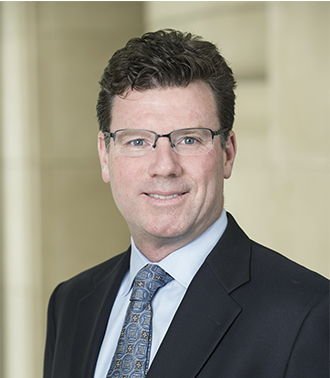Federal Court Upholds Ban on Contractor Political Contributions; Leaves Other Questions Unanswered
A recent US Court of Appeals decision upheld the constitutionality of a statutory ban on political contributions by federal contractors; however, the narrowness of the decision leaves significant questions regarding independent expenditures, Super PACs, and other issues unanswered for federal contractors, particularly partnerships and other non-corporate contractors, in the post-Citizens United world.
In Wagner v. FEC, the DC Circuit, sitting en banc, unanimously upheld the FEC's enforcement of the statutory ban as applied to individual contractors wanting to contribute to federal candidates or political parties. The statute in question, originally enacted in 1940 and codified at 52 U.S.C. § 30119, prohibits any "person" who enters into a federal contract from making any political contributions from the beginning of negotiations to the completion of the contract (or the completion of negotiations if the negotiations are unsuccessful). Three plaintiffs - all individuals holding personal services or consulting contracts with the federal government - challenged this prohibition on First Amendment and equal protection grounds. Finding that the statute is supported by, among other things, the "compelling" government interest in preventing quid pro quo corruption and is "closely drawn to avoid unnecessary abridgement of associational freedoms," the D.C. Circuit upheld the statute, but only as it applies to contributions by individual contractors to federal candidates or political parties.
The narrowness of the decision may set the stage for future challenges. For example, the decision does not, by its terms, apply to other non-corporate contractors, such as partnerships. Although FEC regulations, specifically 11 C.F.R. § 115.4, clearly prohibit contributions and expenditures by partnerships that are federal contractors, the constitutionality of this prohibition was not decided in Wagner. Thus, while the DC Circuit may well believe that the prohibition as applied to partnerships is also constitutional, the Wagner case involved only individuals and the DC Circuit limited its holding accordingly.
Additionally, and importantly for all federal contractors (whether corporate, individual, partnership or otherwise), the DC Circuit notes that the Wagner case did not challenge the ban "as the FEC might seek to apply it to a contractor's independent expenditures…[or] to PACs that themselves make only independent expenditures, commonly known as 'Super PACs.'" This distinction is particularly important in the wake of the Supreme Court's Citizens United decision in 2010, which overturned the FEC's ban on corporate independent expenditures, but left in place the ban on corporate contributions. While the FEC has maintained that federal contractors may not make independent expenditures - nor contribute to Super PACs - since the Citizens United decision,1 it is an open question as to whether this stance would withstand a constitutional challenge.
Indeed, the DC Circuit gives little indication in Wagner of where it might be leaning on that question. On the one hand, they note that they must "review different kinds of campaign finance regulations with different degrees of scrutiny" and that "[l]aws that limit a person's independent expenditures on electoral advocacy are subject to strict scrutiny." In contrast with limits on contributions, which "are subject to a lesser but still rigorous standard of review," limits on expenditures must promote "a compelling government interest and [be] the least restrictive means to further the articulated interest."
On the other hand, in justifying the ban on contractor contributions, the DC Circuit stresses the importance of the government's interest in preventing quid pro quo corruption, and cites a recent Supreme Court decision (McCutcheon v. FEC) in suggesting that the government's interest here may be strong enough to be labelled "compelling" such that it could survive even strict scrutiny.2 Furthermore, the DC Circuit makes clear its opinion that this interest has not waned over time, citing several examples of corruption with respect to contracting including the relatively recent cases involving former Congressmen Randy "Duke" Cunningham and Bob Ney.
Thus, while the FEC can claim victory in Wagner, it is likely not the final word on the contractor contribution ban. As another presidential election year approaches - and Super PACs and independent expenditures continue to proliferate - the question of how the ban applies to independent expenditures and Super PAC contributions may well be the subject of future litigation.
We also note that these questions concern federal election activity only; many states have their own laws dealing with contractor involvement in state elections (i.e., pay-to-play statutes that place restrictions on political contributions by government contractors or require disclosure by such contractors). These pay-to-play laws are not impacted by the holding in Wagner. We encourage you to contact Arnold & Porter if you have any questions concerning compliance with federal or state rules regarding contractor's political activity.
-
See, e.g., FEC Adv. Op. No. 2011-11 (June 30, 2011) (a Super PAC "may accept unlimited contributions from individuals, political committees, corporations, and labor organizations but not from … Federal contractors(.)")
-
The DC Circuit does not opine, however, as to whether an expenditure ban would satisfy the second prong of the strict scrutiny test - i.e., whether it is the "least restrictive means to further the articulated interest."


